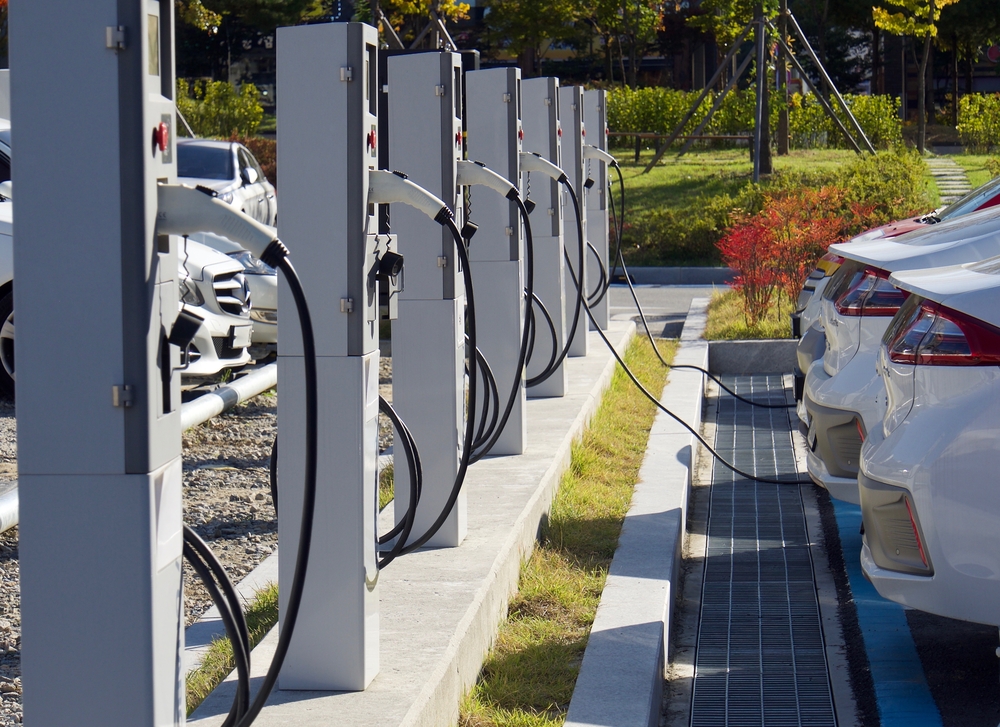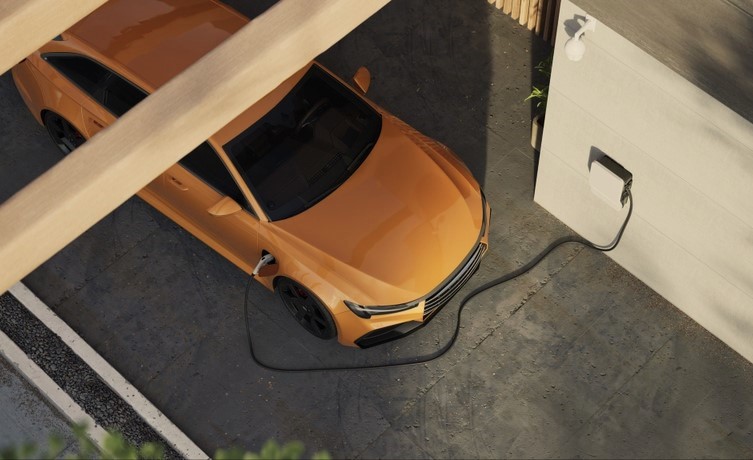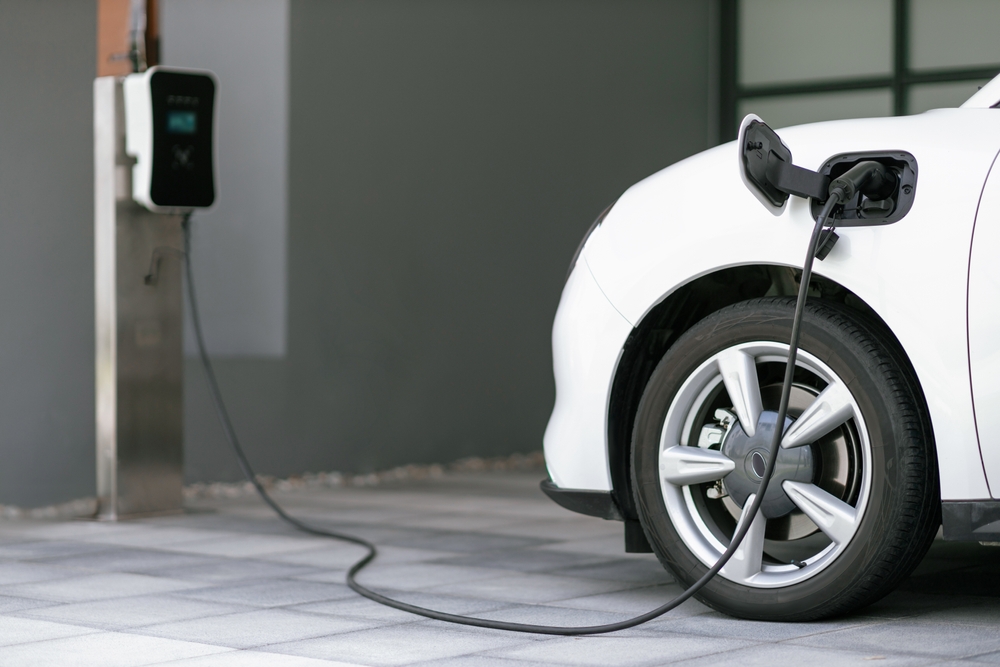
The Rise of Electric Vehicles in Sydney
The adoption of electric vehicles in Sydney is on the rise, with a diverse range of EV models available in the market. As consumers increasingly opt for eco-friendly transportation, it is estimated that electric cars will account for 48% of all new cars sold globally in 2030, further boosting the demand for charging power solutions.
This growing trend is fueled by various factors, such as environmental benefits, government incentives, and infrastructure development.
In Sydney, the government is actively promoting the use of electric vehicles by offering incentives like tax credits, grants, and subsidies. Additionally, the New South Wales (NSW) government has invested $633 million to make the region the most convenient place to purchase and use an EV in Australia by implementing EV charging stations in public areas and developing strategies to transition the region to electric transport by 2030.
Environmental Benefits
The environmental advantages of electric vehicles, such as the electric car, are significant, reducing greenhouse gas emissions and improving air quality in Sydney. Unlike traditional petrol or diesel cars, electric vehicles generate no tailpipe emissions, making them an eco-friendlier transportation option.
As more Sydney residents adopt EVs, there will be a noticeable positive impact on the city’s air quality and overall carbon footprint.
Government Incentives
To encourage electric vehicle adoption, the government of Sydney offers a $3,000 rebate for the first 25,000 battery electric vehicles purchased for less than $68,750 (inclusive of GST). Both residents and businesses are eligible to apply for this rebate, making EV ownership more accessible and affordable for the people of Sydney.
Infrastructure Development
To support the growing number of electric vehicles on the road, Sydney is investing in the development of public charging infrastructure. EV charging stations are being installed in various public locations, such as workplaces, car parks, and council areas.
The $633 million investment by the NSW government aims to make the region a leader in electric transportation, providing a solid foundation for the future of EV adoption in Sydney.
Setting Up Home Charging Stations
For electric vehicle owners, setting up a home charging station offers both convenience and cost savings. With a variety of charging options available, including Level 1 and Level 2 chargers, EV owners can choose the right solution for their specific needs.
Home charging stations not only provide a practical way to charge your EV but also allow you to benefit from lower electricity costs compared to using public charging stations or refuelling with petrol.
When you’re contemplating the setup of a home charging station, it’s worthwhile to consider the available types of chargers, the related installation expenses, and the potential savings on energy costs. Elements like your EV’s model, the distance it travels, and the power requirements of the charger need to be weighed to select the most affordable and suitable charging solution.
Types of Chargers
Home charging stations can be equipped with either Level 1 or Level 2 chargers. Level 1 AC charging, also known as trickle charging, provides a power output of approximately 2.0 kW through a standard 10-amp socket. While Level 1 charging is suitable for overnight charging and shorter commutes, it may not be the most efficient option for longer distances or extended road trips.
On the other hand, Level 2 chargers offer a higher power output and faster charging times, making them a more practical choice for many EV owners. Level 2 single-phase charging provides a power output of 7.2 kW, while Level 2 three-phase charging offers a powerful 22 kW output. The choice of charger depends on the specific needs of the EV owner, taking into account factors such as daily commute distances, available charging time, and budget.
Installation Costs
The cost of installing a home charging station varies depending on the type of charger and any necessary electrical upgrades. Level 1 chargers are typically the most cost-effective to install, as they can be plugged into a standard wall socket without any significant modifications.
Level 2 chargers, on the other hand, require a dedicated circuit and may necessitate alterations to a home’s wiring. It is important to consult with a qualified electrician to determine the specific installation costs for your home and charging needs.
Energy Savings
Charging an electric vehicle at home can be more cost-effective than using public charging stations or refuelling with petrol. By utilising electricity as their fuel source, electric vehicles can be more energy-efficient and cost-effective to operate.
Additionally, coupling an electric vehicle with renewable energy sources, such as solar photovoltaic (PV) panels and battery storage, can further augment the energy savings and environmental advantages.
Electrical Capacity and Safety Considerations
Establishing a home charging station requires an assessment of your home’s electrical capacity to affirm its ability to safely accommodate the charger. This involves evaluating factors such as the type of charger, the quantity of vehicles to be charged, and the available power supply. Moreover, it’s vital to employ safety measures during the installation process to ensure a correct setup of the charger that doesn’t pose a fire risk.
Engaging a qualified electrician is a key stage in ascertaining whether your home’s electrical system is capable of supporting an EV charger. The electrician can perform the following tasks:
- Perform an energy assessment to evaluate the existing circuit breaker sizes and overall building power supply
- Identify the power needs and available line capacity for EV charging
- Plan for the new electrical load that will be necessary for EV charging
Assessing Electrical Capacity
A qualified electrician can help you determine if your home’s electrical system can support an EV charger by conducting an energy assessment. This assessment evaluates the following factors:
- Existing circuit breaker sizes
- Overall building power supply
- Type of EV charger installed
- Amount of power required by the charger
By considering these factors, the electrician can determine if your home’s electrical system is capable of supporting an EV charger.
Confirming that your home can provide sufficient electrical capacity is crucial in assuring that the charging station can manage the electricity demand required to safely and fully charge your electric vehicle, taking into account its battery capacity.
Safety Measures
Setting up a dedicated circuit for the EV charger and employing correct grounding techniques are crucial safety precautions for secure charging. By employing a qualified electrician to install the charging station, you can ensure that all necessary safety precautions are taken, and the charger is installed correctly.
Furthermore, following the manufacturer’s instructions and adhering to safety requirements and standards, such as the National Electrical Code and the National Fire Protection Association, can help guarantee the safe operation of your home charging station.
Solar-Powered EV Charging
Solar-powered EV charging is an innovative and sustainable approach to recharging your electric vehicle, offering additional benefits compared to standard grid-powered charging. By harnessing the power of the sun, EV owners can further reduce their electricity costs and increase their energy independence. However, solar-powered charging also presents its own set of challenges and requires specific products to effectively utilize this renewable energy source.
Smart chargers and careful preparation can help address the issues posed by weather unpredictability and solar panel sizing. By sizing a solar setup to account for the energy demands of charging an EV and investing in solar-compatible charging products, EV owners can enjoy the benefits of solar-powered charging without compromising on convenience or charging speed.
Benefits of Solar-Powered EV Charging
Solar-powered charging can provide the following benefits for EV owners:
- Cost savings
- Increased energy autonomy
- Reduced reliance on grid energy
- Even further minimised electricity costs
- Contribution to a more sustainable and eco-friendly mode of transportation.
Furthermore, coupling an electric vehicle with renewable energy sources, such as solar photovoltaic (PV) panels and battery storage, can further enhance the energy savings and environmental advantages of EV ownership.
Challenges and Solutions
Solar-powered EV charging, while advantageous, is subject to limited sunlight availability, dependence on weather conditions, and limited energy storage. To address these challenges, EV owners can augment their charging infrastructure by increasing the number of solar panels or investing in energy storage capabilities.
By carefully planning their solar setup and considering the energy demands of their EV, owners can enjoy the benefits of solar-powered charging without compromising on charging speed or convenience.
Available Products
Several solar-compatible EV chargers are available in the market, offering various features and capabilities to suit a range of needs. For example, Eco-Smart by Wallbox allows for charging an EV with either 100% solar energy or a combination of solar and grid energy. This smart charging system enables users to monitor and control their charging from any location and incorporates a selection of safety features to guarantee secure charging.
By investing in solar-compatible EV chargers, homeowners can maximize the benefits of solar-powered charging and contribute to a more sustainable future.













